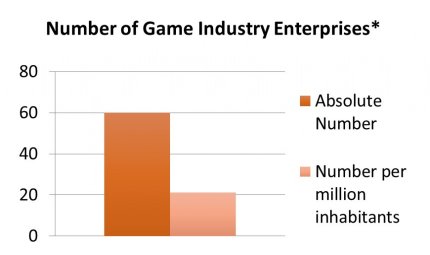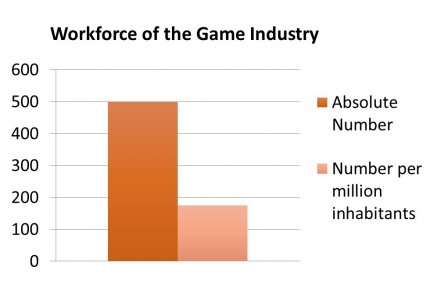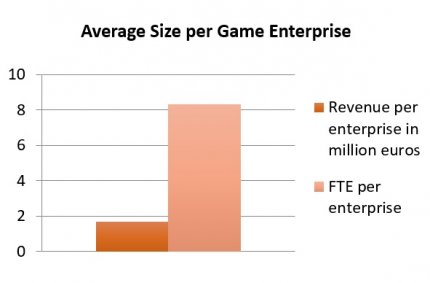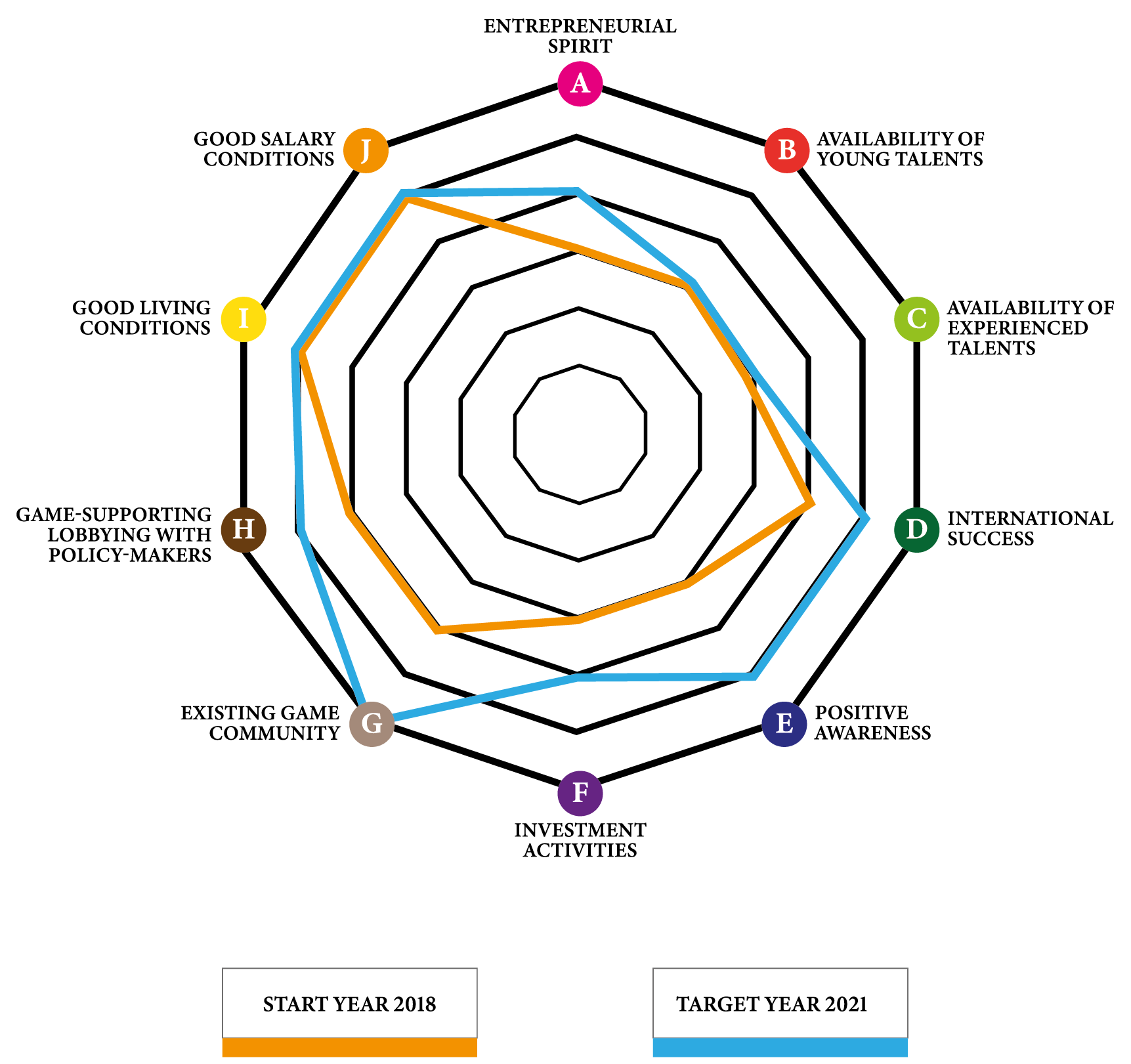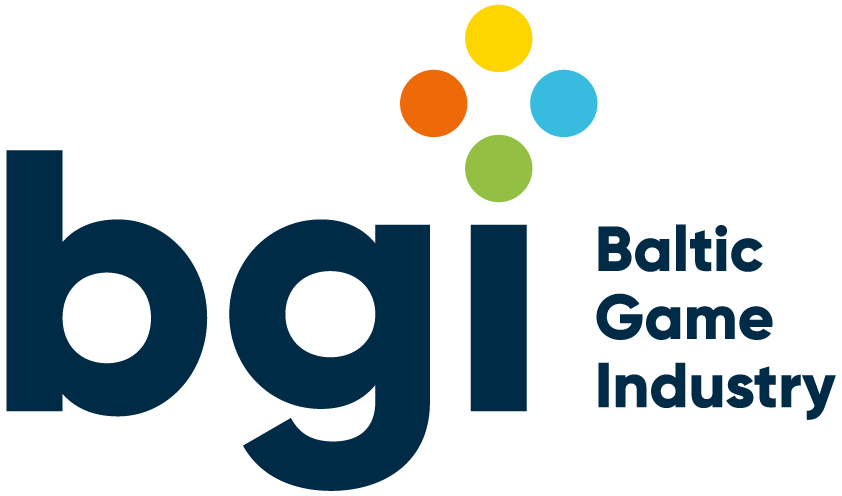Regional Game Industry Profile Lithuania
With a total of 47 game developing companies*, the Lithuanian Game Industry as the other two Baltic states still a young emerging business sector. The amount of game industry enterprises per one million inhabitants sums up to 16, situating Lithuania in the lower range within the BSR. The Lithuanian Game Industry is represented by a high amount of small companies with an average size of 8 employees per firm. This low average of employees results from the fact that 79 percent of Lithuanian game companies have only 10 or less employees. The absolute number of employees within the Lithuanian Game Industry sums up to more than 770. That means with respect to the Lithuanian population, at least 265 employees per one million inhabitants are working in the game developing and producing sector. The revenue of 115 m € is comparably high for the industry size, on average each firm generates 2.44 m €. The industry support in Lithuania is represented by 1 interest/lobby association and 6 technical incubators that can also cater to game start-ups. But with no incubators specialised in game start-ups, there seems to be some room for improvement in terms of target-oriented support in order to strengthen the Lithuanian Game Industry.
Source: Data from Lithuanian Game Developers Association, own chart
Source: Data from Lithuanian Game Developers Association, own chart
Source: Own deduction
| Interest/lobby associations | 1 |
| Incubators with full focus on games | 0 |
| Technical incubators that could in principle harbour game start-ups | 6 |
| Revenue | 115 m € (2018, source: own calculations) |
Additional information
According to Doingbusiness.org, the UK, Lithuania and Estonia have the simplest procedures for establishing a new business. In Latvia and Lithuania, it only takes three days to start up a business. In Estonia administration costs are double those of Lithuania.
In terms of office costs, the Baltic countries have the most affordable rental prices in capital cities such as Tallinn and Vilnius. In both cities, office space is available for less than 16 € per square meter.
One of the most significant differences between the European hotspots is the cost of hiring skilled IT specialists, as data from Payscale.com shows. Vilnius is the leader in terms of the competitiveness of salaries for software engineers. The same employee in Berlin costs almost three times as much. Lithuania has 31,500 IT specialists in the market, and this number is growing as 6 universities and colleges offer GameDev study courses. There are no huge triple A studios in the Baltic states and a lot of time will pass before one will surface.
Lithuania has more than 750 people working in the game industry right now. Lithuanian Global Game Jams are second largest in the world (counting attendees per capita), it’s the only country in the Baltics that had almost a dozen of dedicated video game magazines published in local language. Further, Lithuania is home of GameOn events which started in 2014 and is so far the biggest annual gaming expo in the Baltics that also has a B2B part.
Lithuania also has its closely-knit game industry community. More than 10 studios from RU/UA/BY have relocated to LT over past 2 years, and they have built a supportive community that’s there to provide help and advice for new companies looking to set up in Vilnius. With the fastest public WiFi in the world, and fast broadband speeds, Vilnius comes out on top for infrastructure.
______________________
Status: 2020
- Lithuanian Game Developers Association: personal communication by Kaunas Science and Technology Park
